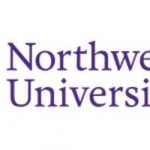A New and Elegant Quantum Teleportation Scheme

(By Amara Graps, Staff Writer) A new, highly robust, quantum teleportation method, which is, in principle, unconditional, with no entanglement, was published by Stefan Langenfeld and his colleagues at the Max Planck Institute of Quantum Optics (MPQ) in the third quarter 2021. This method, aimed for communication networks, successfully demonstrated that a single photon can teleport the spin state of a single atomic qubit to a second atom 60m away, without losing the quantum information.
The robustness of this scheme is due to the temporal shape of the employed photon, determined by a predefined, incoming pulse. The shape can be quickly changed between different shapes to counteract distortions in different channels of a quantum network. E.g. for those caused by changes in the ambient temperature that can alter the length or refractive index of both fiber- and free-space channels, which would therefore lead to fluctuating photon arrival times. The shape of the coherent pulses needs only to meet the condition that the spectral width of the photon is smaller than the cavity line-width.
In their paper, the authors describe how the information is communicated deterministically, without entanglement, in principle: If the photon is lost on the way, Alice’s qubit is not affected, and the protocol can be repeated until a successful photon transmission is signaled unambiguously with downstream photo-detectors. Instead of pre-sharing the entanglement resource, the entanglement is generated as needed, between Bob’s qubit and the photon, when the latter interacts with his node.
Once their setup is improved with cavities having a reflectivity close to unity, and negligible photon loss between Alice’s cavity and the downstream detectors, and then the researchers will achieve a unique flexibility. The authors suggest that their protocol would allow for teleportation between any combination of unknown matter and light qubits. It would be possible to convert the wavelength of the ancilla photon during its passage from ‘Bob’ to ‘Alice’, in case the two communication partners employ different kinds of qubits.
The result is a flexible protocol that is: platform independent, and can consider different carriers of quantum information coupled to resonators such as vacancy centers in diamond, rare-earth ions, superconducting qubits, or quantum dots.



















